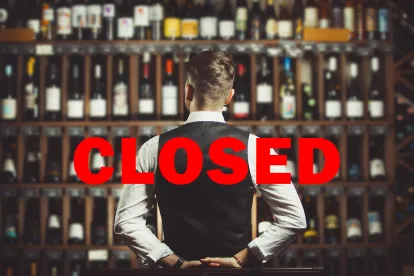Effective October 2, 2020, the United States Small Business Administration created a path to avoid the SBA pre-approval for change of control transactions involving borrowers under the Paycheck Protection Program. The SBA Procedural Notice lays out a (relatively) clear multi-part test for whether the PPP lender can unilaterally approve a change of control transaction without first seeking SBA pre-approval.
Background
On March 27, 2020, the President signed the Coronavirus Aid, Relief, and Economic Security Act of 2020 (the “CARES Act”) into law. Section 1102 of the CARES Act temporarily permits the SBA to guarantee 100% of loans granted under the Paycheck Protection Program (“PPP”). Under the PPP, the United States Small Business Administration (the “SBA”) guaranteed forgivable loans to small business concerns and other qualifying borrowers. The PPP was closed to new borrowers since August 8, 2020, but millions of qualified businesses were able to obtain PPP loans prior to the deadline.
Clarifying on Existing SOP
Since April 1, 2019, SBA Standard Operating Procedure (through Procedural Notice 5000-19009) prohibited the lender of certain SBA loans to unilaterally approve a change of ownership of the borrower within the first year since final disbursement of the SBA loan (the “2019 SOP”). PPP loans, which are issued under Section 7(a) of the Small Business Act, are ostensibly covered by the 2019 SOP.
Most (if not all) PPP loans require the prior consent of the PPP lender for a change of voting control or sale of all or substantially all of the assets of a PPP borrower. However, the SBA had not previously weighed in on whether a PPP loan, which is of a different character than typical 7(a) loans, is subject to the 2019 SOP (and therefore whether a lender can unilaterally approve such a transaction without having first obtained SBA prior approval). This created uncertainty for buyers and sellers in mergers and acquisitions transactions, and investors in significant equity raises, about who must to sign off to the transaction.
Effective October 2, 2020, SBA released Procedural Notice 5000-20057 (the “2020 SOP”), which clarifies when SBA prior approval must be obtained by the PPP lender before it can consent to a change of ownership transaction. The 2020 SOP defines a change of ownership is any of (x) a sale or transfer of at least 20% of stock or other ownership interest of the borrower (including to affiliates of existing holders, (y) a sale of 50% or more of the assets of the borrower, or (z) a merger where the borrower is not the surviving entity.
As an initial matter, whether or not SBA pre-approval is required, the PPP borrower should seek the affirmative consent of the PPP lender in writing, and such written consent should specifically include an acknowledgment that the PPP lender will not deny forgiveness on the basis that the PPP borrower underwent a change of ownership. This written consent may also include an acknowledgment by the parties that the PPP lender is a third party beneficiary of any escrowed or held-back funds securing repayment of the PPP loan in the event forgiveness is denied.
Under the 2020 SOP, no SBA pre-approval is required where the PPP loan is repaid in full in connection with the change of ownership or where forgiveness has already been fully processed and disbursed before the closing. As of the date of this alert, forgiveness application portals still haven’t opened for many borrowers, but there are other reasons (such as the availability of employee retention credits) why a buyer may insist on repayment of the PPP loan in connection with the change of ownership transaction, regardless of the forgiveness prospects.
In a stock transaction or merger where the PPP loan will not be fully satisfied, the 2020 SOP clarifies that no SBA pre-approval is required if either (I) the sale or issuance is of less than a majority stake or (II) forgiveness will be sought for the full amount of the PPP loan and the parties fully escrow against the outstanding PPP loan. The PPP lender must “control” the interest-bearing escrow account and funds must be disbursed directly to the PPP lender if forgiveness is not granted in full.
Under the 2020 SOP, in asset sale transactions SBA pre-approval is required unless (I) less than 50% of the assets (on a fair market value basis) are sold or (II) forgiveness will be sought in full and the parties fully escrow against the outstanding PPP loan to be held and disbursed as described above.
Whether forgiveness is available for the entire PPP loan is a factual question for the target or issuer in the change of ownership transaction. Regarding the escrow, it is unclear whether the funds must be held by the PPP lender or merely being a third party beneficiary will suffice. Also, it remains to be seen if the escrow account must in fact be interest bearing (which comes with increased costs to the parties) or if the parties can simply escrow principal plus interest to fully secure the PPP loan. Who would bear the cost of such an interest-bearing, third party escrow is a business decision for the parties to make.
The 2020 SOP also clarifies that buyers with existing PPP loans are not barred from acquiring other PPP borrowers, but the buyer remains responsible for each PPP loan and must take reasonable measures to track and segregate the separate PPP funds. The PPP lender must also notify the SBA of the change of ownership transaction shortly after the closing, so when seeking PPP lender consent as described above, the parties should assure the PPP lender the transaction does not require SBA pre-approval.
The 2020 SOP gives buyers and sellers much needed clarity in change of ownership transactions involving PPP borrowers. Prior to the 2020 SOP, it was already best practice to get robust stimulus loan representations and warranties from the target, escrow the full amount of the PPP loan (including interest) and to seek PPP lender consent before closing, so transactions that closed prior to issuance of the 2020 SOP may have, without knowing it, already complied with the requirements to avoid SBA pre-approval.




 />i
/>i
